[Tech Update] Benchmark Testing of UP 7000 and Raspberry Pi 5
FredyHsu
Administrator, Moderator, AAEON Posts: 54 admin
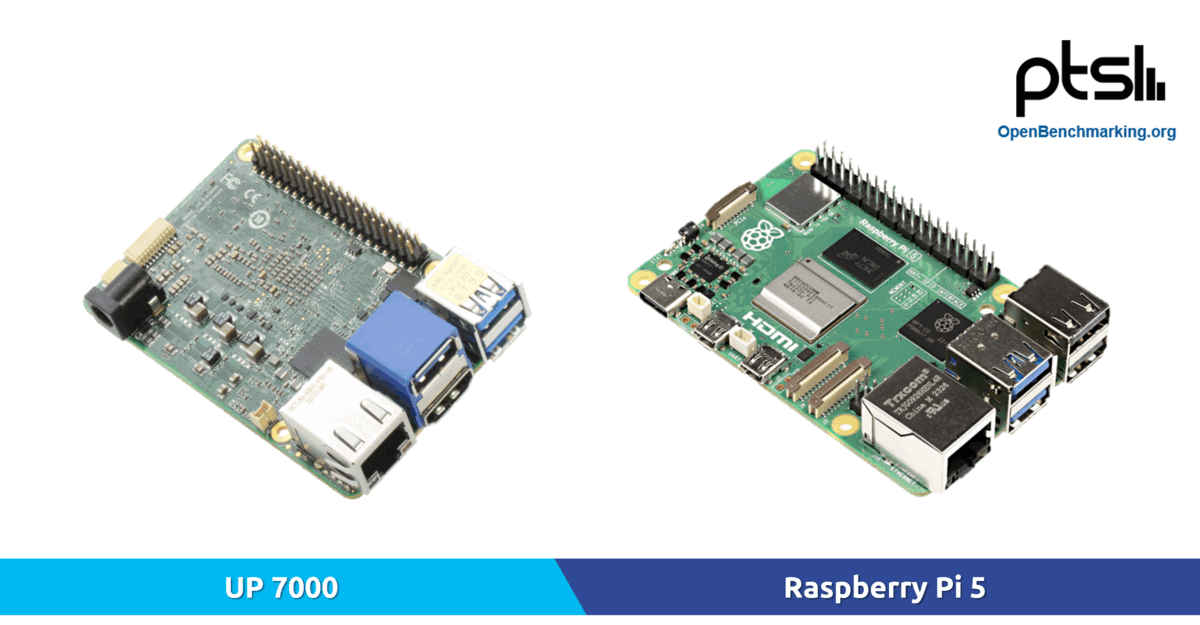
With the Raspberry Pi 4 a moderate passive heatsink or even active cooling is recommended. But with Raspberry Pi 5 adequate cooling is crucial with the higher-clocked and faster Cortex-A76 cores. For this reason, in this comparison, we will show the performance of Raspberry Pi 5 without cooling and with the optional active cooler provided by the RPi Foundation. The UP 7000 is a credit card-sized developer board that is powered by the latest Intel® Processor N-series platform (formerly Alder Lake-N) 1. The performance is up to 1.4x improved compared to previous Intel SoC generation in single thread. The built-in Intel® UHD Graphics Gen12, a new generation of GPU based on Xe architecture with up to 24 Execution Units, is also a powerful AI engine and available for AI inference (with FP16 and INT8 quantization support). UP 7000 series has a standard industrial PC operating temperature range of 0~60 C, making it flexible for any applications and it comes with a proper passive heatsink to handle properly the cooling of such powerful board. It is also designed with industrial standard 12V DC power input. With Secure Boot support and the TPM 2.0 chip on board, UP 7000 enables better security options for any project, thanks also to the support of multiple operating systems such as Microsoft Windows 10/11 and multiple Linux Distributions like Debian and Ubuntu. Both Single Board Computers offer a flexible 40-pin HAT GPIO can be configured also as PWM, UART, I2C, I2S, SPI. Test Setup: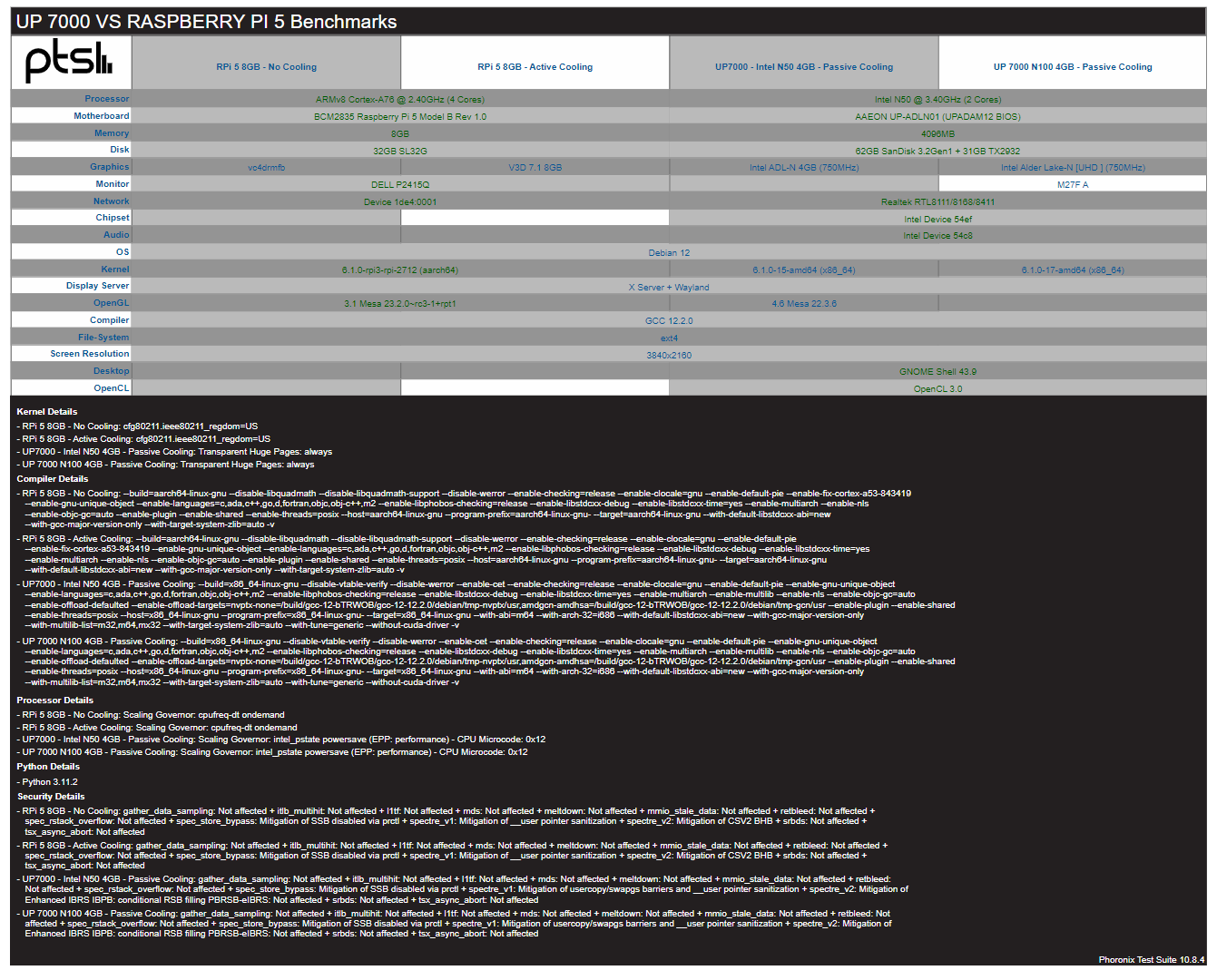 Comparison Overview and Results: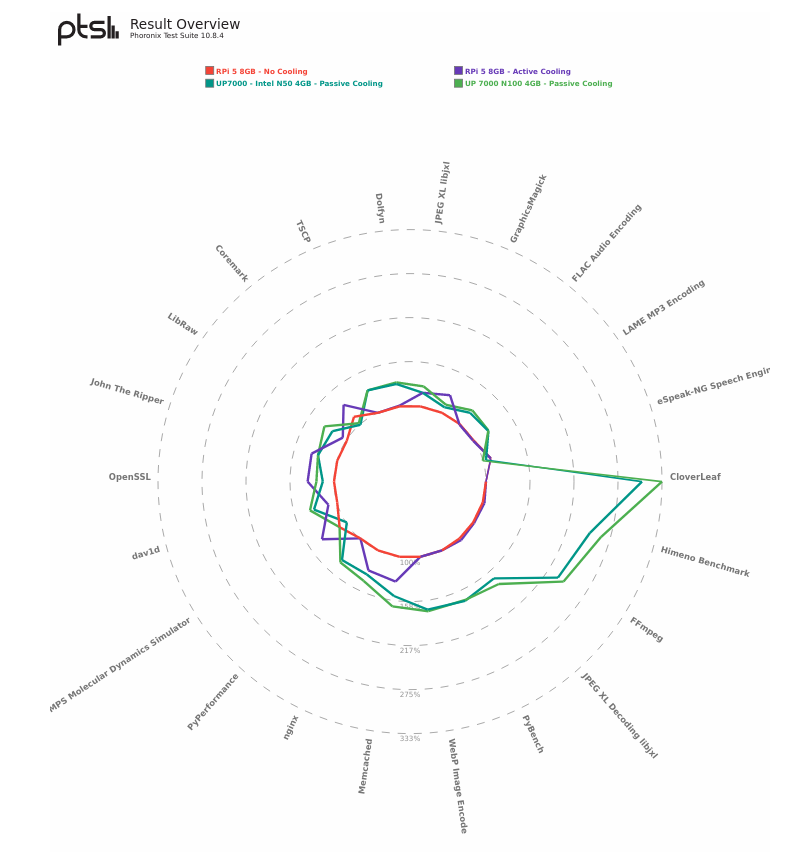 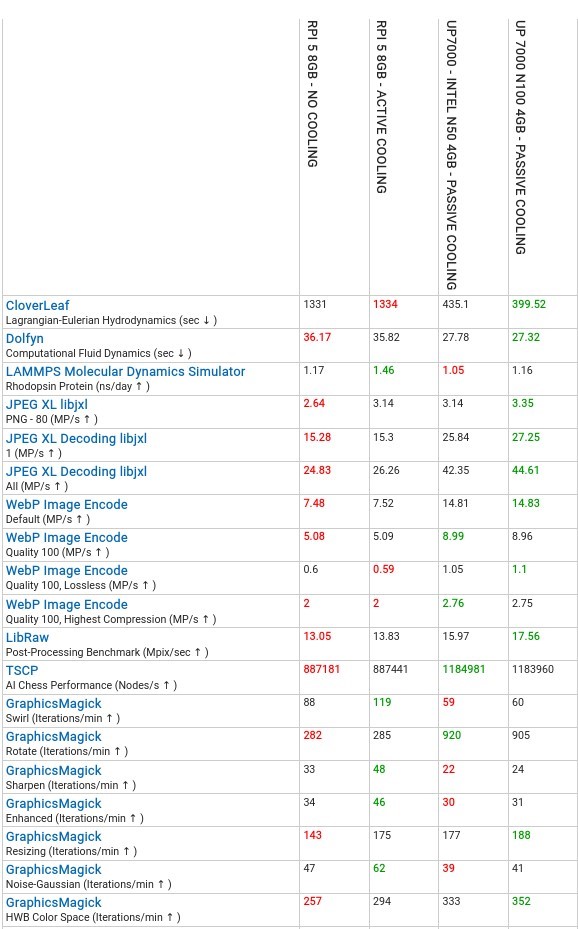  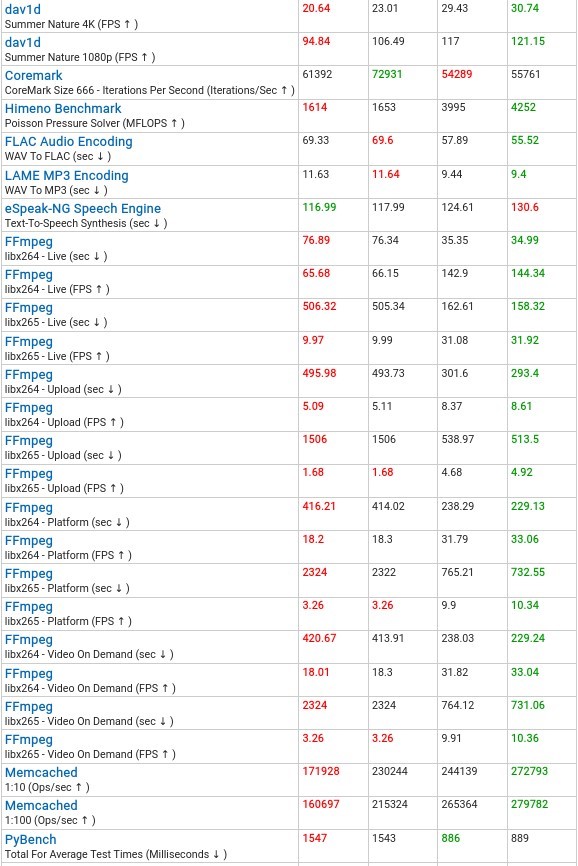  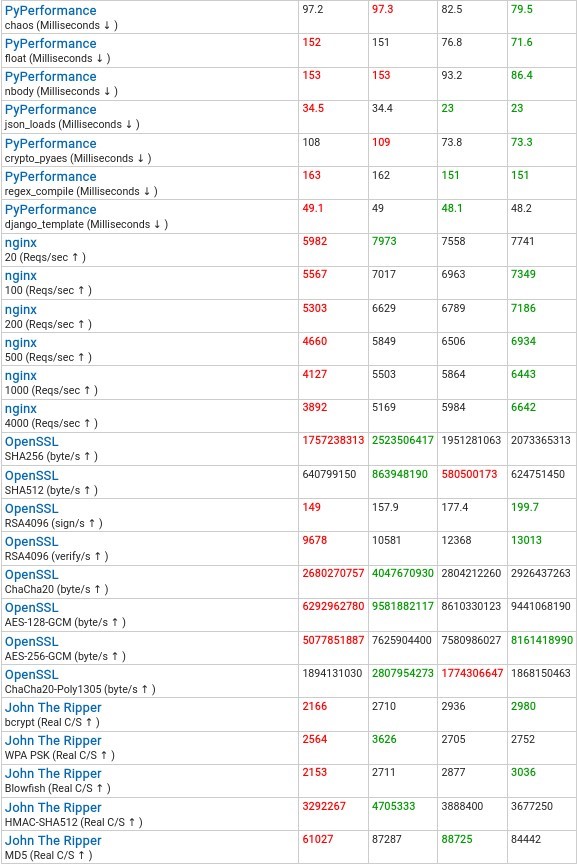  Executive Summary of ResultAs results of the benchmarks, UP 7000 N100 4GB had the most wins. When compared to Raspberry Pi 5, UP 7000 offers superior performance for the most common applications and use cases, including compression tests, network/server applications, cryptography, encoding/decoding, and image processing. It also provides better results for generic CPU tests, GPU, and memory tests 2. Although UP 7000 is priced higher than Raspberry Pi 5, it offers faster performance, integrated embedded storage with multiple options (32 GB / 64 GB / 128 GB eMMC) and security features such as secure boot and TPM2.0 onboard chip 2.
|
